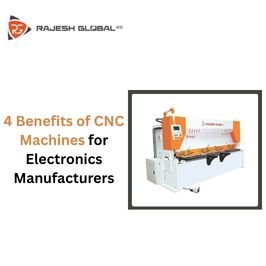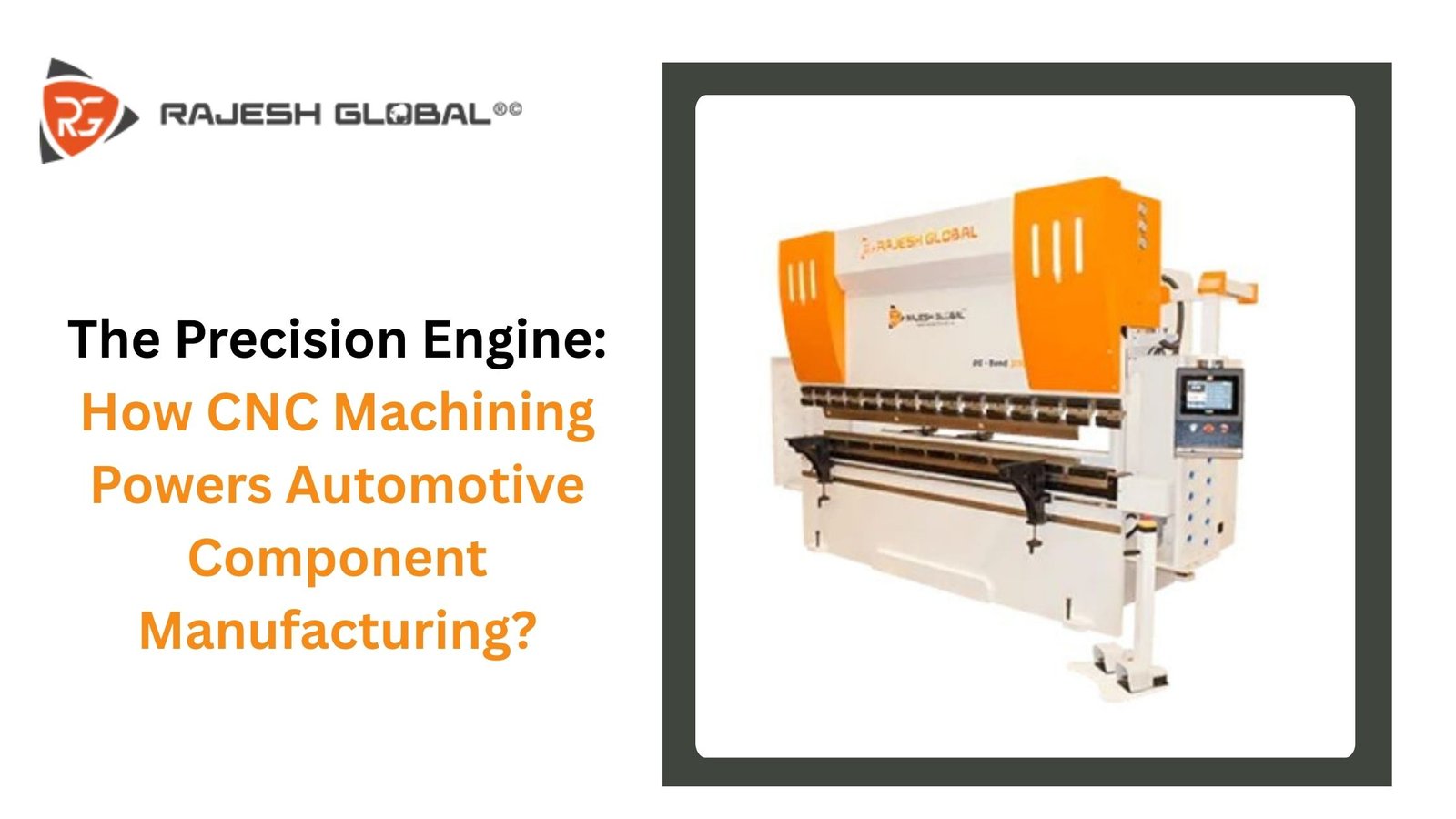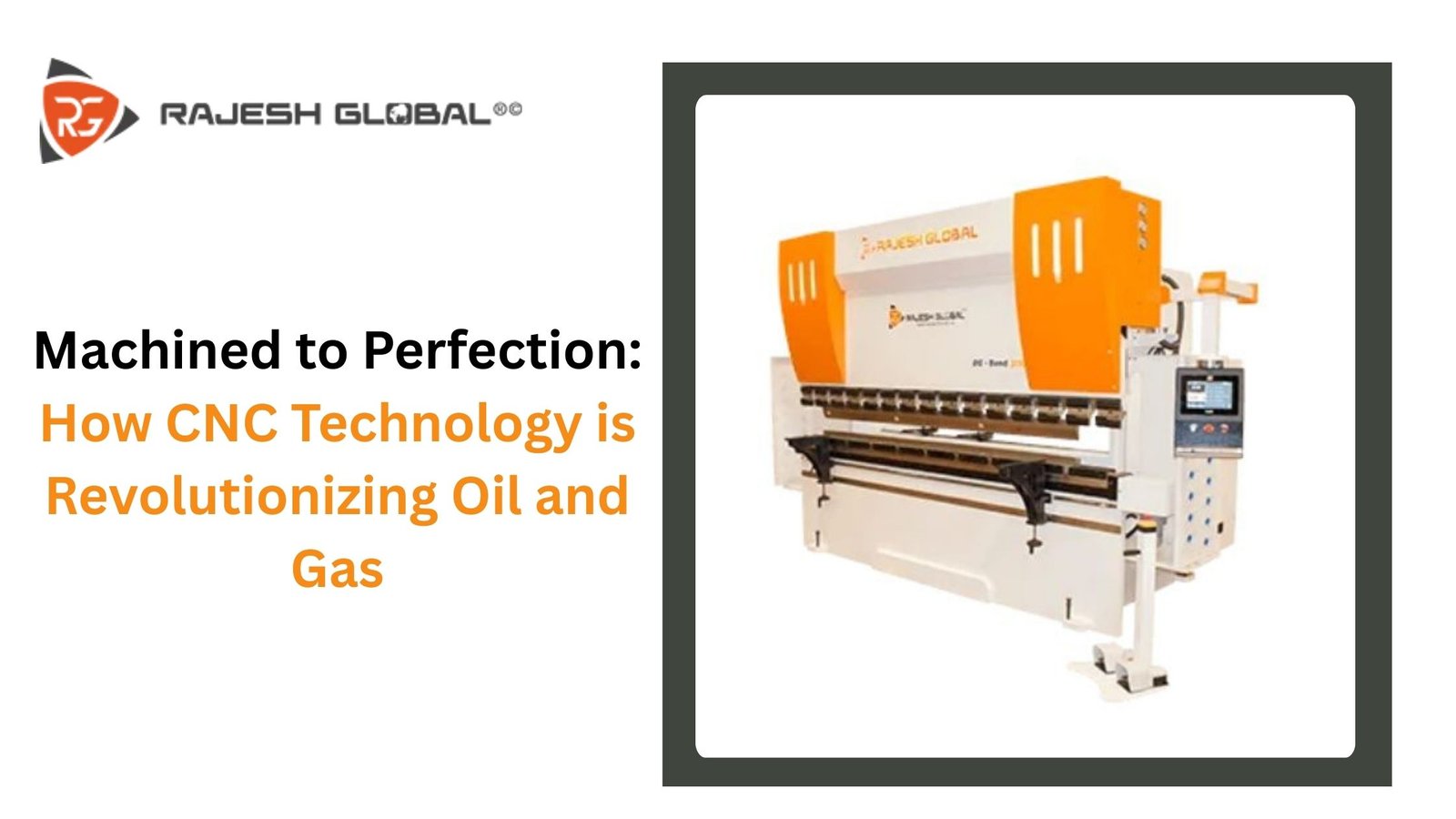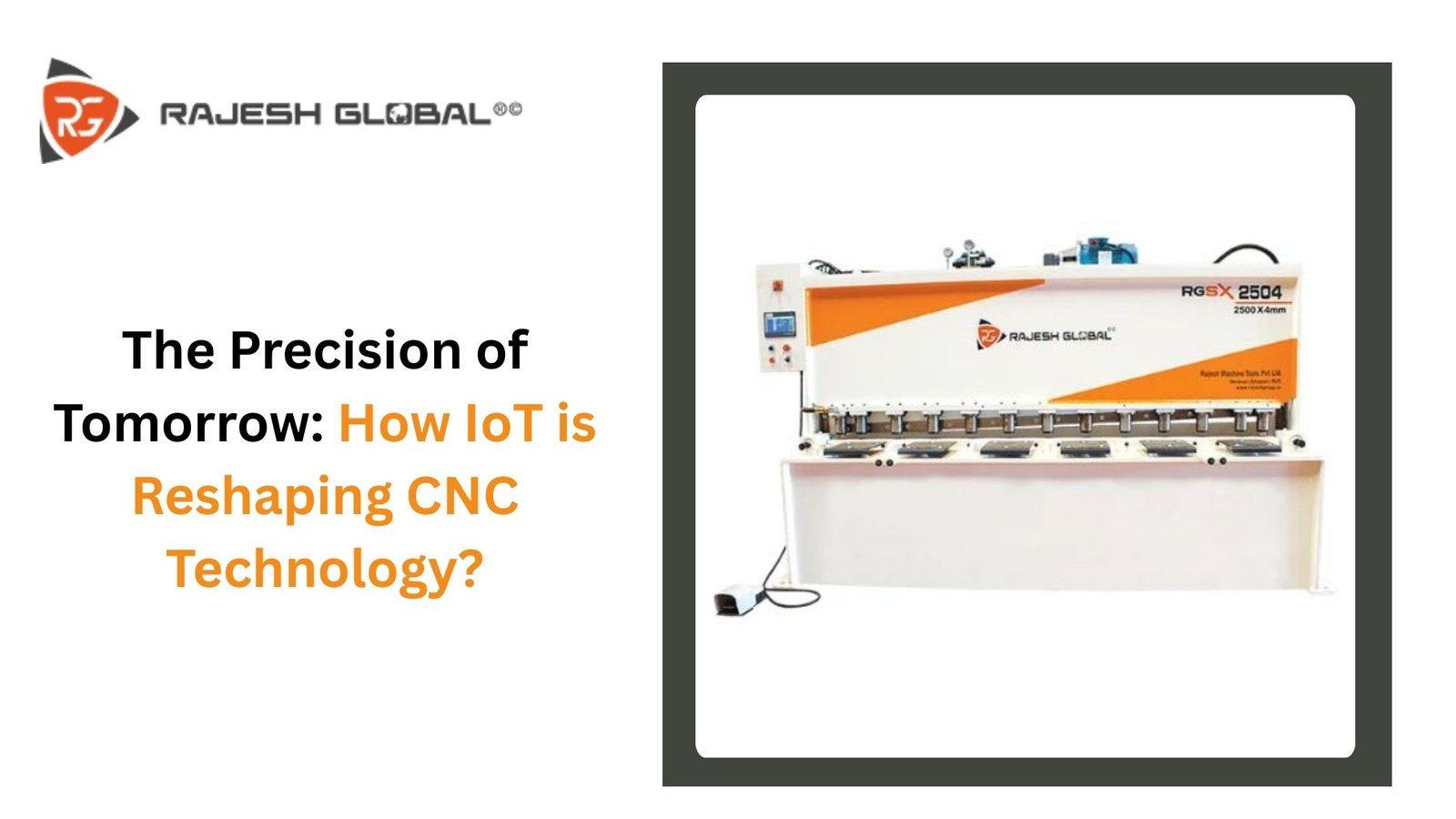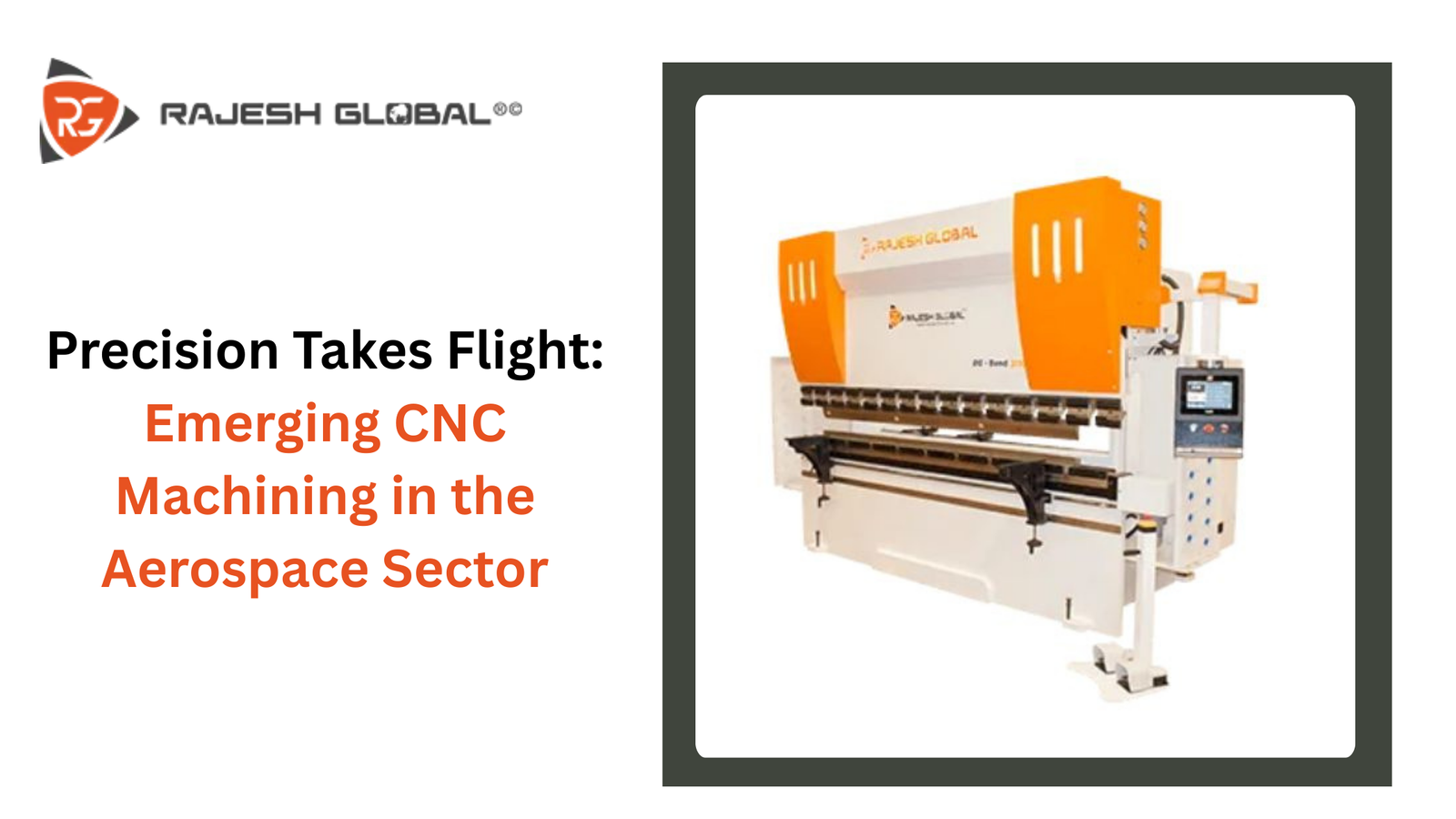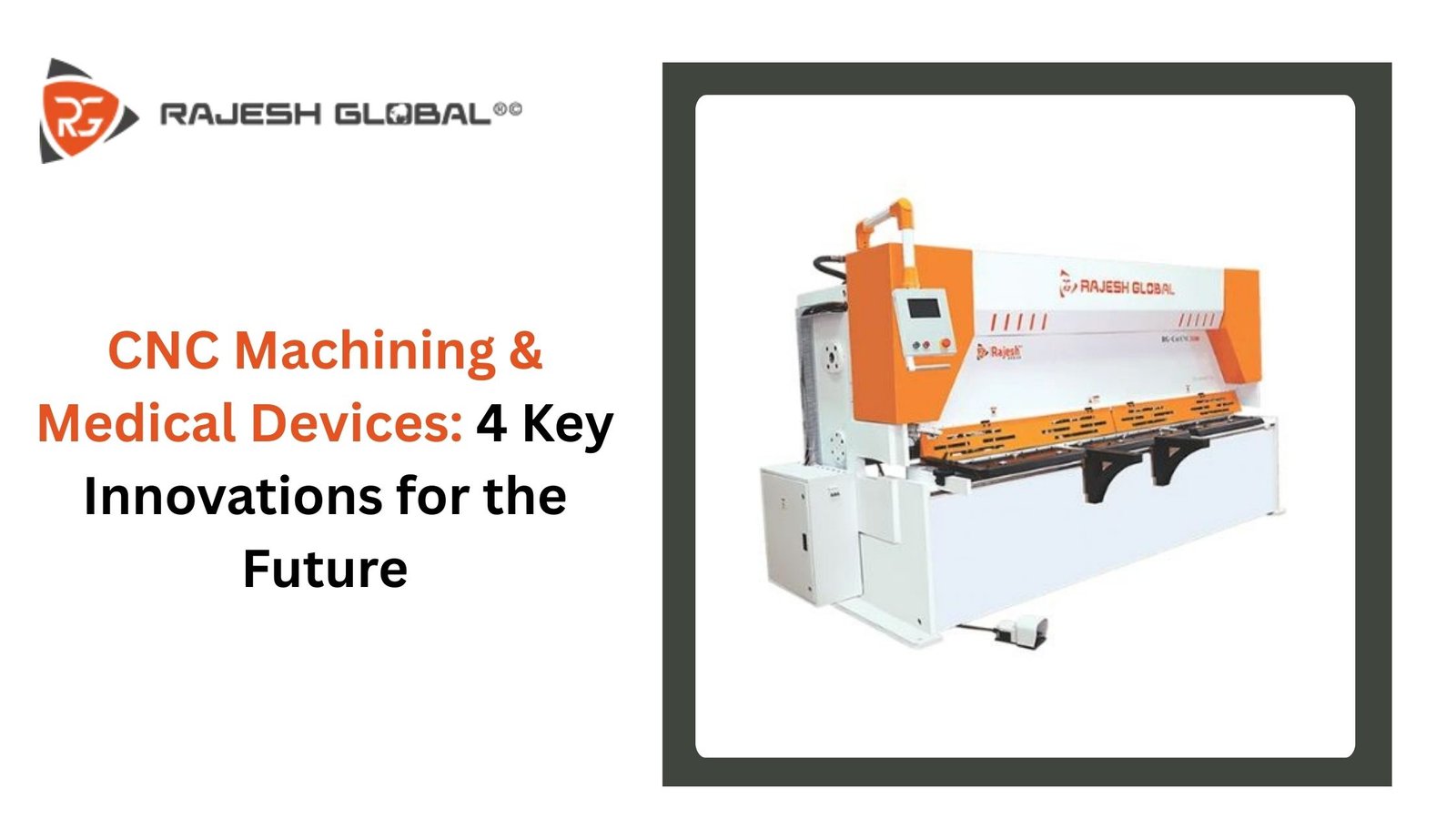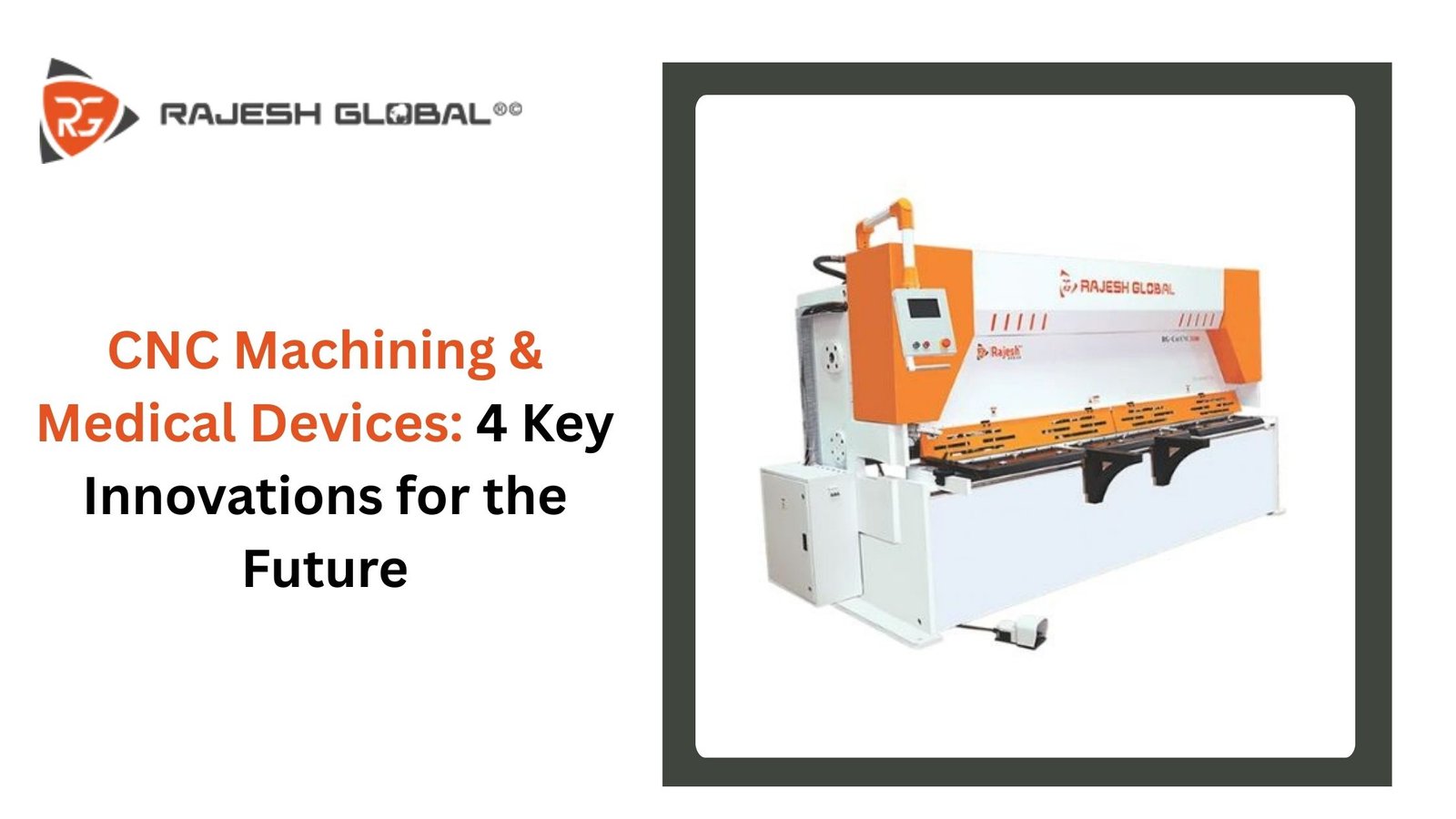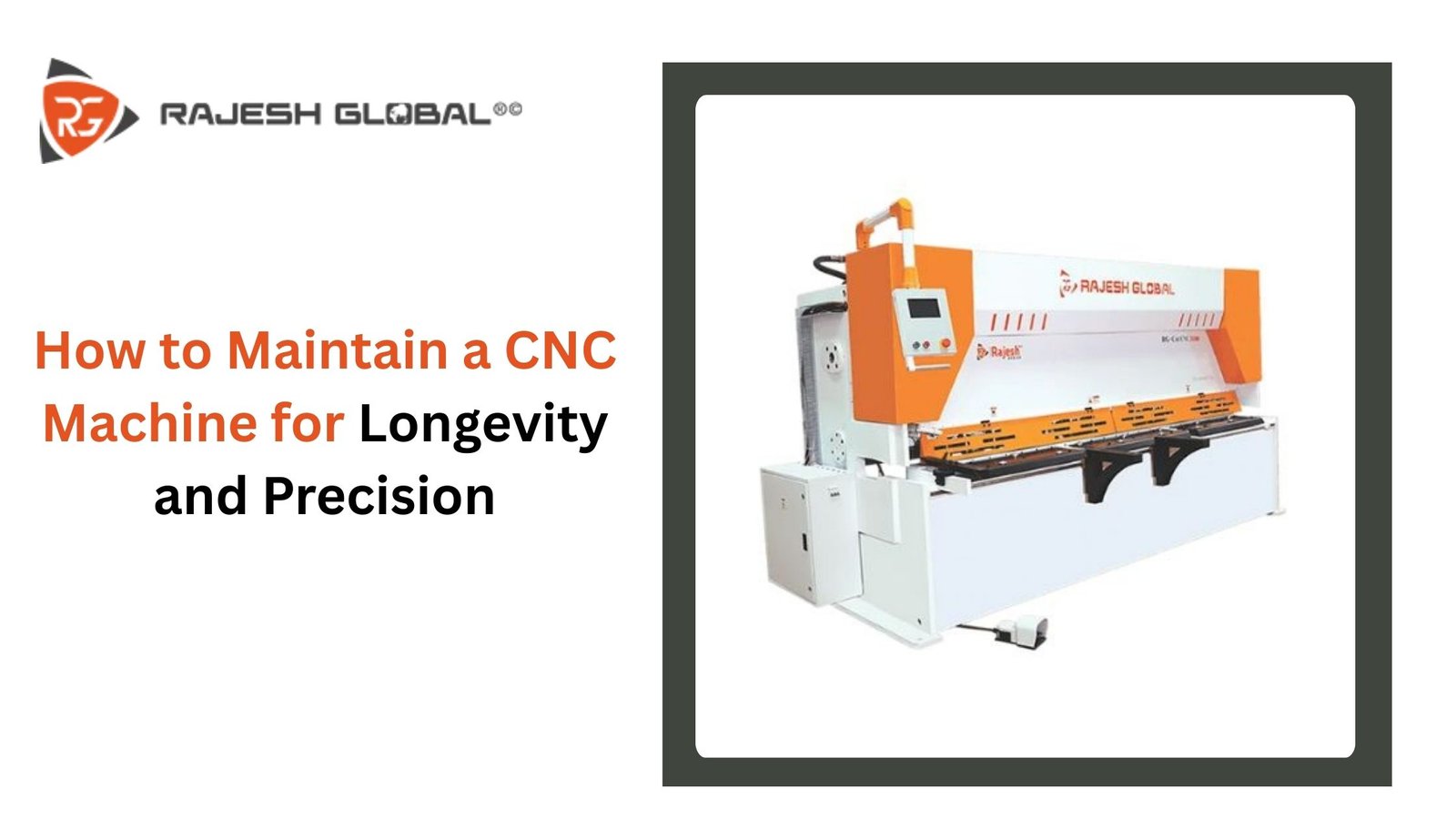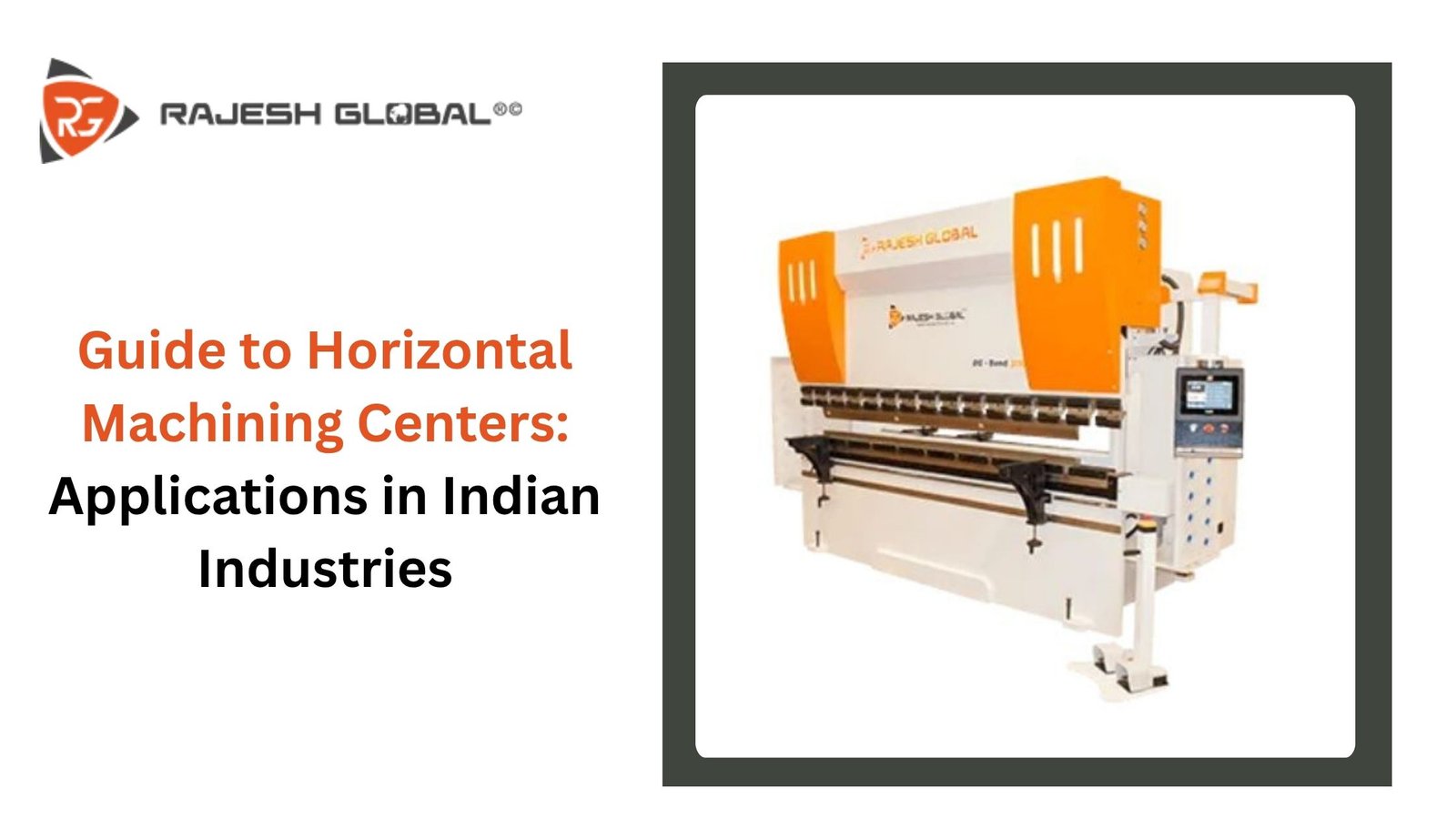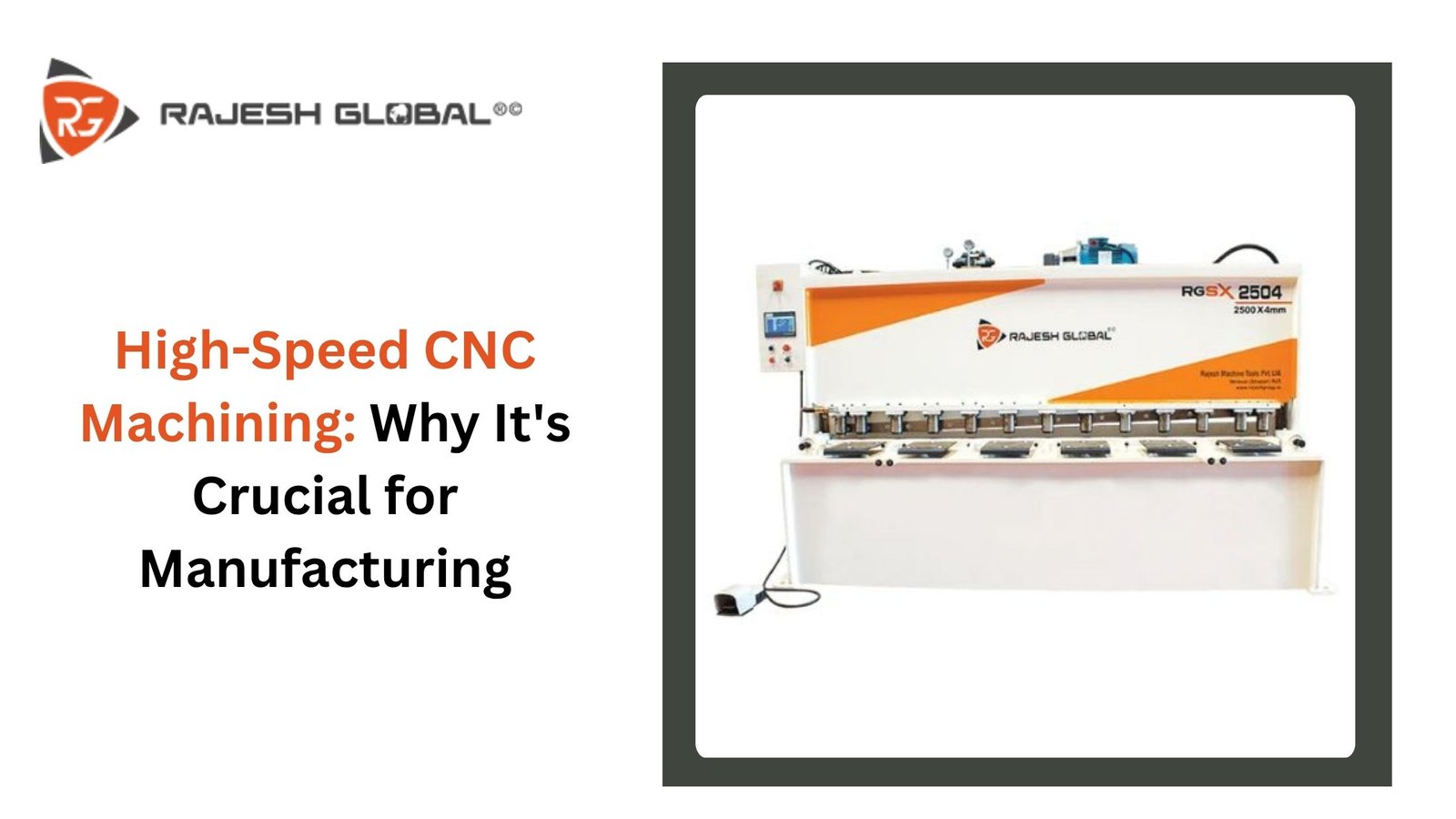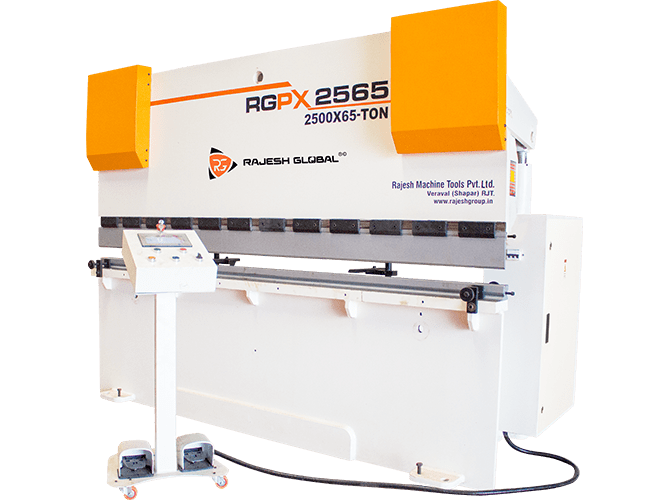The electronics industry is thriving like never before, powered by a global shift toward smart devices, connected systems, and advanced miniaturized components. With consumer and industrial demand growing at an unprecedented pace, manufacturers must rely on state-of-the-art solutions to deliver intricate, high-quality electronic products. One technology stands at the heart of this transformation: CNC machines. As leaders in providing cutting-edge manufacturing tools, Rajesh Machine Tools brings you a detailed look at how CNC machinery is revolutionizing electronics production, spotlighting the four key benefits every manufacturer needs to know about.
Why CNC Machines are Essential for Electronics Manufacturers?
The modern electronics sector depends on the flawless execution of complex designs, ultra-fine geometries, and reliable repeatability. This need is driving manufacturers to adopt advanced Computer Numerical Control (CNC) technology. Recent industry data reveals that around 65% of electronics manufacturers intend to boost investment in CNC machines in the coming years. Such figures underscore the unmatched advantages CNC technology offers: high precision, robust productivity, ultimate customization, and rigorous quality control. These elements are vital for maintaining competitiveness and meeting market demands.
1. Precision and Accuracy: Meeting the Tightest Tolerances
Achieving Microscopic Accuracy
Electronics depend on tiny, delicate parts–from microchips to circuit board traces–where even a minor flaw can cause system failure. CNC machines excel in this realm, translating digital blueprints into physical components with extreme fidelity. Their advanced control systems allow for repeatable production with micron-level accuracy.
- Unmatched Consistency: CNC systems ensure that every part, even in high-volume runs, matches the original design exactly, minimizing variation and supporting product reliability.
- Broad Application: From consumer gadgets to critical medical devices, electronic assemblies manufactured on CNC machines deliver superior performance and longevity.
Impact on Device Reliability
The end result of CNC-driven manufacturing is enhanced product reliability. Tighter tolerances and improved fit and finish mean fewer failures, better device performance, and higher end-user satisfaction.
2. Efficiency and Productivity: Driving Next-Level Manufacturing Speed
Continuous Operation
A pivotal benefit of CNC machines in electronics manufacturing is their ability to operate continuously, sometimes around the clock. Once programmed and set up, CNC machines require minimal supervision:
- Automated Production: Modern CNCs can run complex processes unattended, freeing up labor for more strategic tasks.
- Reduced Downtime: Smart scheduling and automated tool changes help minimize interruptions, ensuring optimal throughput.
Scaling Up Production
CNC technology supports rapid scale-up, so when an electronics manufacturer needs to ramp up production, the transition is seamless:
- Flawless Replication: Each new batch matches the first, eliminating variation and reducing costly rework.
- Waste Reduction: By precisely controlling material use, CNC machines lower scrap rates, thus saving both time and money.
- High-Speed Prototyping: Prototypes and initial runs can be switched to full-scale manufacturing quickly and efficiently, shortening time-to-market for new electronics.
3. Versatility and Customization: Manufacturing Without Limits
Broad Material Compatibility
CNC machines are engineered to handle various materials essential in electronics production:
- Metals: Such as aluminum, copper, and specialized alloys for conductors, enclosures, and heat sinks.
- Plastics: For insulators, connectors, and casings.
- Composites: Used in advanced circuit boards and specialty parts.
Adaptability to Any Design
Whether manufacturing housings for rugged devices, intricate PCB panels, or specialized mounting hardware, CNC machines deliver:
- Rapid Design Iteration: Engineers can make quick adjustments to CAD models, which CNC systems translate into new prototypes or parts with minimal delay.
- Personalized Solutions: Small batches or highly customized components are feasible and cost-effective–vital in today’s fast-moving and fragmented electronics sector.
Prototype to Production
This flexibility enables electronics manufacturers to keep up with accelerating design cycles and evolving customer expectations—all while maintaining precise quality controls.
4. Improved Quality Control: Raising the Bar for Manufacturing Excellence
Built-In Process Monitoring
Modern CNC machines are outfitted with sophisticated sensors, real-time analytics, and automated feedback mechanisms:
- In-Process Measurement: Components are measured as they are produced, ensuring all parts meet exact specifications.
- Reduction in Defects: Automated checks catch deviations early, minimizing the risk of scrap or downtime due to faulty parts.
Data-Driven Improvements
Collected data powers continuous improvement initiatives, from process optimization to predictive maintenance, enhancing overall factory performance and product consistency.
- Traceability: Detailed production records support quality assurance and compliance with industry regulations.
- Automated Adjustments: As soon as variation is detected, the machine can auto-correct, ensuring consistency across entire production runs.
CNC Technology: Shaping the Future of Electronics Manufacturing
As competition intensifies, electronics manufacturers are under pressure to innovate rapidly and deliver products that are smaller, faster, and more reliable. CNC machinery is not simply a tool in this journey—it is a catalyst for smarter, more agile, and more competitive manufacturing:
- Innovation Acceleration: Fast prototyping and modular design allow companies to bring new ideas to market quickly.
- Cost-Effectiveness: Automation and process optimization reduce labor and material costs, empowering manufacturers to compete globally.
- Sustainability: Efficient material use, waste minimization, and consistent part quality contribute to greener manufacturing operations.
By leveraging the latest CNC solutions from Rajesh Machine Tools, manufacturers can confidently navigate these challenges, delivering top-tier products while adapting to ever-changing consumer and industry trends.
Applications of CNC Machines in Electronics
| Application Area | CNC Contribution |
| PCB Fabrication | Precision drilling, routing, and forming of PCBs |
| Semiconductor Manufacturing | Micron-accurate cutting and shaping of silicon wafers |
| Enclosure Production | Complex geometry machining in aluminum and plastics |
| Connection Components | Ultra-fine thread tapping and contact formation |
| Custom Prototyping | Rapid development of new device concepts |
CNC’s adaptability makes it ideal for both mass production and bespoke, complex electronics projects.
Industry Trends: The Expanding Role of CNC in Electronics
- Increased Adoption: The growing trend of miniaturized, high-functionality electronics is expected to further drive CNC machine adoption.
- Automation Integration: Combining CNC with robotics and AI enhances efficiency, accuracy, and traceability.
- Smart Manufacturing: Data analytics and advanced CNC controls enable smart, connected factories that maximize output and minimize errors.
As customer expectations for quality and delivery speed rise, CNC technology positions electronics producers for lasting competitive advantage.
Why Choose Rajesh Machine Tools for Advanced CNC Solutions
Reliability and Expertise
Rajesh Machine Tools is at the forefront of delivering reliable, efficient, and cost-effective CNC machines tailored to electronics manufacturing. Our solutions are engineered with the latest technology, proven in industry-leading facilities, and backed by ongoing support.
Customer-Focused Innovation
- Customized Solutions: From small startups to established industry leaders, we tailor each machine and service package to meet specific production needs.
- Training and Support: Comprehensive after-sales training and 24/7 support help maximize machine uptime and productivity.
Trusted by Electronics Manufacturers
Our partnership approach means long-term collaboration aimed at driving real results for our customers—whether optimizing existing processes or scaling up for new opportunities.
Practical Guidance: Maximizing CNC Benefits in Electronics
- Invest in Training: Leverage our training programs for smoother adoption and better results from new CNC investments.
- Prioritize Maintenance: Regular preventative maintenance keeps precision and output high.
- Stay Updated: The field of CNC is changing fast—work with a partner that delivers software and hardware updates to maintain your competitive edge.
Conclusion
The adoption of CNC machines is redefining what’s possible in electronics manufacturing. By delivering unrivaled accuracy, efficiency, flexibility, and quality assurance, CNC technology empowers manufacturers to create smaller, smarter, and more reliable electronics than ever before. Rajesh Machine Tools stands ready to help companies harness these advancements for business growth, market leadership, and a more innovative future in the electronics sector. For bespoke CNC solutions, trusted support, and the expertise to help your business thrive, connect with Rajesh Machine Tools today and take your electronics manufacturing to new heights.

